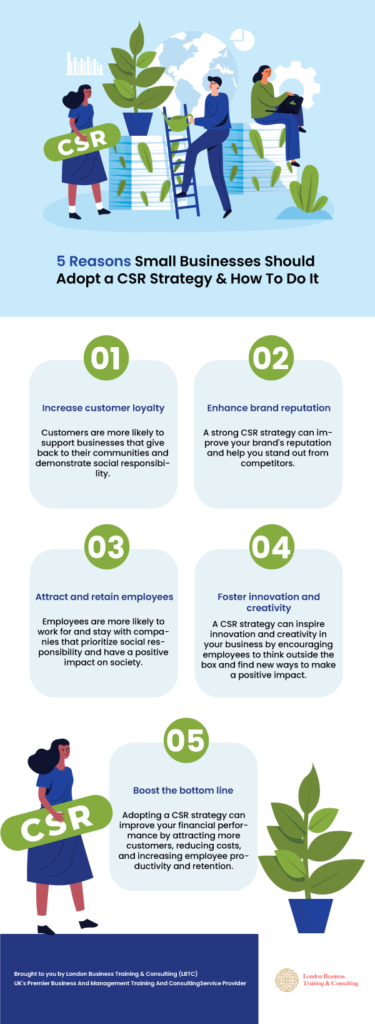
Corporate Social Responsibility (CSR) has become an increasingly vital aspect of business operations in today’s socially conscious world. It involves taking responsibility for a company’s impact on society and the environment. By actively engaging in CSR initiatives, businesses can contribute to positive social change while building a reputable brand image. Here we will delve into the various types of CSR practices and highlight their benefits to businesses and communities.
1. Environmental Sustainability:
One significant aspect of CSR is environmental sustainability. Many companies now recognize the importance of reducing their ecological footprint and implementing environmentally friendly practices. This includes initiatives such as minimizing waste, conserving energy, promoting recycling, and adopting sustainable sourcing and manufacturing processes. By prioritizing environmental sustainability, businesses contribute to a greener planet and enhance their reputation as responsible corporate entities.
2. Philanthropy and Community Engagement:
Engaging in philanthropic activities and supporting local communities is another key aspect of CSR. Businesses can contribute to social development by investing in community projects, supporting educational programs, providing healthcare facilities, and addressing social issues in their communities. Such initiatives create a positive impact and foster goodwill, leading to stronger relationships with stakeholders.
3. Ethical Business Practices:
Ethical business practices are an essential component of CSR. This involves conducting business operations with integrity, honesty, and fairness. Companies must comply with legal regulations, uphold human rights, and prioritize employee well-being. Ethical sourcing, fair trade practices, and transparent supply chains ensure that all stakeholders, including employees, customers, and suppliers, are treated fairly and ethically.
4. Employee Welfare and Development:
CSR also extends to the welfare and development of employees. CSR is crucial to creating a safe and inclusive work environment, providing fair remuneration, offering employee benefits, and supporting professional growth. Companies can enhance employee satisfaction, loyalty, and productivity by prioritizing employee welfare.
5. Stakeholder Engagement and Reporting:
Effective stakeholder engagement is vital for successful CSR implementation. Businesses must communicate openly with their stakeholders, such as customers, employees, suppliers, and local communities. This allows them to comprehend better and address any expectations or concerns. Transparent reporting on CSR initiatives, progress, and impact is essential to build stakeholder trust and credibility.
Corporate Social Responsibility plays a pivotal role in shaping businesses’ sustainable and ethical practices. By embracing different types of CSR initiatives, such as environmental sustainability, philanthropy, ethical business practices, employee welfare, and stakeholder engagement, companies can positively impact society and foster long-term success.
By enrolling in the CSR course from LBTC, businesses can gain a competitive edge in incorporating CSR practices into their organizational culture.



Leave a Reply